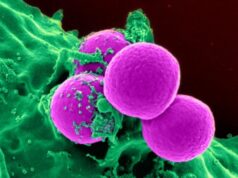New research suggests that statins are associated with lower rates of breast cancer and subsequent mortality.
Credit: © designer491 / Fotolia
A 14 year study in more than one million people has found that women with high cholesterol have significantly lower rates of breast cancer and improved mortality. The research, presented today at ESC Congress, suggests that statins are associated with lower rates of breast cancer and subsequent mortality.
“This is the most conclusive and direct evidence as yet to confirm the link between high cholesterol and breast cancer, a topic that has been fascinating researchers for the past few years,” said Dr Rahul Potluri, senior author and founder of the ACALM Study Unit at Aston Medical School, Aston University, Birmingham, UK.
“We previously found an association between having high cholesterol and developing breast cancer so we designed this study to follow up patients longitudinally and address the relationship more robustly,” he continued. “Showing that patients with high cholesterol have a lower risk of developing breast cancer and subsequent mortality in a longitudinal study like this provides the strongest evidence for a protective effect, which is likely related to statins.”
Find your dream job in the space industry. Check our Space Job Board »
The current study followed-up women aged 40 or more with, and without, a diagnosis of high cholesterol and compared the development of breast cancer and subsequent mortality rates in the two groups. Patients admitted to UK hospitals with high cholesterol between 1 January 2000 and 31 March 2013 were recruited from the Algorithm for Comorbidities, Associations, Length of stay and Mortality (ACALM) clinical database. They were followed-up until 2013 for a new diagnosis of breast cancer and subsequent mortality obtained from the Office for National Statistics. Analyses were performed to adjust for demographic and clinical characteristics between the groups.
Out of a total of 1 220,024 patients in the ACALM study, there were 16,043 women with high cholesterol aged 40 or over who were compared to an equivalently sized and age-matched group of patients without high cholesterol.
The researchers found that those with high cholesterol were 45% less likely to develop breast cancer than those without high cholesterol. After adjusting for factors which might influence mortality, including age, sex, ethnicity, and the ten most common causes of death in the UK, the researchers found that patients who developed breast cancer were 40% less likely to die if they had high cholesterol than if they did not.
Dr Potluri said: “Compared to those without high cholesterol, patients with high cholesterol had a 45% reduced risk of breast cancer, and if they did develop breast cancer, a 40% reduced chance of death. If a diagnosis of high cholesterol leads to lower breast cancer rates this must either relate to something inherent in the condition or affected patients, or more likely, to treatment with widely used cholesterol lowering interventions such as statins.”
Dr Paul Carter, lead author of this study and researcher at the ACALM Study Unit, said: “Our research confirms that women with a diagnosis of high cholesterol have strikingly lower rates of breast cancer with improved death rates and survival. Building on previous research by us and other groups, including animal studies in which statins reduced the risk of breast cancer, this gives a strong indication that statins produce this protective effect in breast cancer.”
“Statins have some of the best mortality evidence amongst all cardiovascular medications and their use in patients with a diagnosis of high cholesterol is likely the reason this diagnosis appears to be protective against the development of breast cancer and subsequent mortality,” continued Dr Carter.
He added: “The results of this study provide the strongest justification to date for a clinical trial evaluating the protective effect of statins in patients with breast cancer, and this is what we intend to do.”
Dr Carter concluded: “Patients with breast cancer who have high cholesterol, people at high risk of cardiovascular disease, and those with established cardiovascular disease should be given statins according to current guidelines. I don’t think at the moment we can give statins to prevent or reduce mortality from breast cancer per se. But a positive result in a clinical trial could change this and it is an exciting and rapidly progressing field.”
Story Source: Materials provided by European Society of Cardiology. Note: Content may be edited for style and length.











